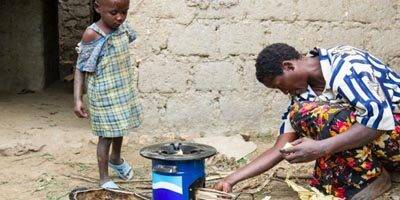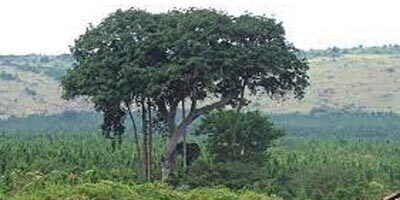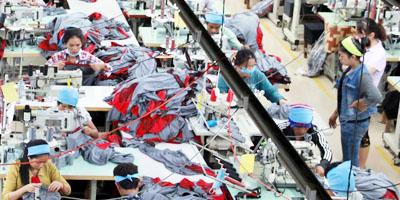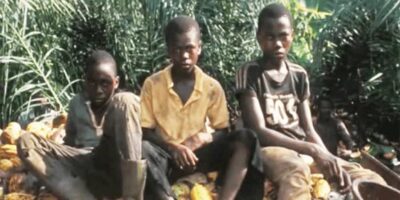In the absence of a comprehensive human rights policy to protect the people affected by the World Bank’s development programs all over the world, two initiatives at the World Bank have taken rights protection into their own hands.
The division of the World Bank that supports private sector investment, the International Finance Corporation (IFC), is working toward implementing clearer standards of social protection for the people its initiatives involve. IFC representatives say that the impetus for such standards comes from its business clients who are pushing for it to ensure their investments succeed.
Beyond the IFC, there is no similar effort to develop human rights policies within the World Bank. A serious difficulty with a rights-based approach is that some countries, like China, strongly oppose it, according to Cal MacWilliam, Senior Advisor to the Executive Director representing Canada on the World Bank Board of Directors. Many countries already have a problem with the basic governance indicators and the accountability required by the World Bank, MacWilliam continued, and many have problems with gender equality.
Country representatives are also largely unfamiliar with human rights policy, which may explain their neglect of rights-based approaches.
Another interesting development comes from a handful of progressive Nordic countries, which have kicked in $20 million to create the Nordic Trust Fund. The Fund bypasses the lack of Bank-wide policy on human rights by strengthening rights protection at the project level. Participation is voluntary, and so includes projects led by individuals who already have an interest in observing rights standards.
When I spoke with Anders Zeijlon, Coordinator of the Nordic Trust Fund, about the program he described a “knowledge gap” between those who work on human rights and those who work on development. The Nordic Trust Fund is designed to address this knowledge gap by educating Bank staff on rights rather than lobbying for changes in official World Bank policy. According to Zeijlon, World Bank staff isn’t necessarily familiar with human rights, or what a rights-based approach might mean in practice – as in health provision in a particular country, for example.
Established with contributions from Denmark, Iceland, Norway, Finland and Sweden, the Nordic Trust Fund’s stated objective is “to respond to the need for better internal knowledge and learning for Bank staff and management and to equip them to better understand how human rights relate to their work.”
By using their experience to develop guidelines for use throughout the Bank, the Nordic Trust Fund hopes to generate greater awareness among Bank management and staff of how to implement a rights-based approach. They hope that this education will eventually broaden acceptance and use of human rights policy throughout the World Bank.
The establishment of the Nordic Trust Fund was contentious, and opposed by World Bank President Robert B. Zoellick, but other European countries came to its defence.
The Trust Fund will be working with about twenty project teams for a year or two, and translate the lessons learned into training material for World Bank staff. For example, one team is working in Colombia, where the highest court has ordered that health services be provided to all sectors of the community. The Nordic Trust is providing the funding to hire human rights expertise, and make this project, which has a clear human rights link, different.
Lenders, not human rights defenders
A comprehensive human rights policy falls outside the scope of the World Bank’s principal role as a lender and donor to developing countries, according to Cyprian Fisiy, the Director of the Social Development Department of the World Bank’s Sustainable Development Network. In 2004 the World Bank dolled out $20.1 billion and offered financial and technical advice for 245 poverty-reduction projects in developing countries around the world.
Fisiy views human rights in the World Bank context in terms of the distributional impacts of economic development their loans initiate – if the poor benefit as the result of a development project, their rights have been respected.
The World Bank is not an enforcer of international agreements on human rights to which countries are signatories, Fisiy told me, and it is an illusion to think that the World Bank can fight those battles on behalf of citizens.
“In terms of the rule of law, the World Bank approaches it very timidly,” Fisiy said, adding that the Bank focuses on building accountability, good governance and reducing corruption. “Greater transparency gives citizens the capacity to fight their own battles,”
Fisiy doesn’t see the development of a rights policy as practical.
“There are different systems of justice and interpretation. What does “justice” mean in different contexts, different communities? You are talking about a model of the state that isn’t universal.”
The knowledge gap also lies behind the Bank’s unwillingness to hold countries accountable to the international agreements they have signed on to, said MacWilliam. The World Bank’s Board of Directors are not up to speed on human rights agreements – even in the Canadian office there is no one with knowledge of rights-based development.
Small steps towards human rights for all
Despite these limitations, MacWilliam sees the Inspection Panel process as a step toward greater attention to human rights at the World Bank. Inspections investigate complaints of damaging environmental and social impacts and have increasingly included aspects of human rights. MacWilliam believes there is the possibility of improving these when the Bank conducts its policy review.
One review underway right now is of Performance Standards at the International Finance Corporation (IFC) division of the World Bank group.
The performance standards for the IFC inspection include two aspects of human rights protection – labour rights and the rights of indigenous people. The consultation on performance standards now being conducted includes a review of the gaps in rights protection, and a reconsideration of how to engage with local communities.
There is strong NGO pressure to change the World Bank’s current approach to creating and implementing development projects, which marginalizes knowledge and input from people the projects affect. While the Bank does require consultation with local communities, these consultations have been criticized for being ineffective in gaining the community’s consent. A new approach is being considered – “good faith negotiation” – that considers local people as participants rather than as variables.
Mainstreaming rights as risk management
The IFC and its private sector clients see rights as part of risk management, Yann Wyss, a Projects Officer at the Environmental and Social Development Department said, but the rest of the World Bank considers rights to be a government responsibility. And when you involve governments, it becomes political.
As it is, IFC policies on core labour rights actually go beyond the standards of the International Labour Organization, Wyss said, which are obligations for countries, because they include company responsibility.
“The challenge is really about how we can mainstream human rights language into the language we use now, which is social and environmental language, and what kind of changes that would lead to at the policy and project levels.”
These are not the first efforts to build rights language in World Bank practice. For several years there has been a team working to mainstream the rights of people with disabilities into World Bank programs, but with little success. The Poverty and Social Impact Assessment process that is supposed to guide projects from their outset has been much heralded but has done little to improve projects, let alone advance human rights protection.
Even so, the development of rights policies at the IFC and the efforts of the Nordic Trust are worth watching and supporting. It is long past time for Canada to participate in efforts like these to build respect for rights in World Bank programs.






